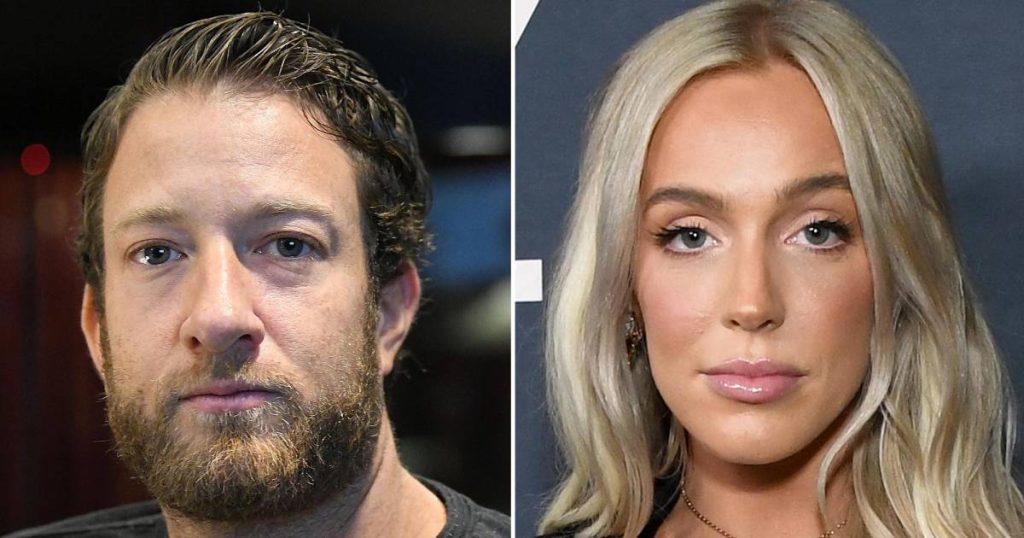Barstool Sports, a digital media company known for its provocative content and outspoken personalities, has often found itself in the spotlight, sometimes due to controversies surrounding employee compensation. Several current and former employees have publicly discussed their salaries, offering a glimpse into the financial landscape within the organization. These revelations have sparked debates about fair pay, performance-based compensation, and the power dynamics between content creators and the platform.
One of the most publicized salary discussions involved Grace O’Malley, a former Barstool personality who departed the company after a falling out with her co-host. O’Malley initially claimed she “didn’t make anything” beyond her base salary, implying dissatisfaction with her compensation. However, Barstool founder Dave Portnoy refuted this claim, revealing that O’Malley earned a base salary of $175,000 annually, supplemented by 70% of any revenue generated through her personal social media sales, which amounted to an additional $75,000 in 2024. Portnoy defended the company’s compensation practices, emphasizing that Barstool splits profits 50/50 with its personalities after recouping their base salaries. He also addressed the pay disparity between O’Malley and her former co-host, Brianna “Chickenfry” LaPaglia, attributing it to LaPaglia’s greater prominence as a personality.
Other Barstool personalities have also offered insights into their earnings. Dan “Big Cat” Katz, a prominent figure within the company, disclosed that he became a millionaire around 2018 or 2019. Kevin Clancy, known as KFC, revealed that his initial salary at Barstool was $50,000, eventually reaching $100,000. He also mentioned a promotion to GM of Comedy, although he humorously noted that this did not involve a renegotiated contract. Conversely, Harry Settel, known as Lil Sasquatch, stated that his salary remained below six figures even after three years with the company.
Discussions about base salaries at Barstool have also taken place publicly. Big Cat admitted to not knowing the current base salary, while Gerard “Jersey Jerry” Gilfone suggested that $100,000 was a typical starting point for New York-based employees. Brandon Walker countered this by stating his starting salary was $60,000. Adam “Rone” Ferrone, another Barstool personality, explained that behind-the-scenes roles and entry-level positions generally offered lower salaries, unless an individual possessed a significant pre-existing following that could be leveraged for higher compensation.
Ria Ciuffo and Fran Mariano, hosts of the “Chicks in the Office” podcast, provided further perspective on Barstool’s contract negotiations. They described their second contract as a significant milestone, doubling their initial salary. They emphasized the performance-based nature of their contracts, tied to the overall success of their podcast brand, and noted that all brand deals were managed through Barstool’s sales department. Ciuffo expressed satisfaction with their compensation and a sense of financial stability.
Perhaps the most dramatic and public salary dispute involved the former hosts of the “Call Her Daddy” podcast, Alex Cooper and Sofia Franklyn. Cooper revealed their initial three-year deal, which started at $75,000 annually with incremental increases to $85,000 and $100,000 in subsequent years. Cooper received an additional raise for taking on production responsibilities, which she did not initially disclose to Franklyn. The duo’s subsequent pursuit of a higher salary, allegedly influenced by Franklyn’s then-boyfriend, led to a contentious “rooftop meeting” with Dave Portnoy. The resulting offer of $500,000 and ownership of the show was accepted by Cooper but rejected by Franklyn, leading to their split. Cooper remained with Barstool for a year before securing lucrative deals with Spotify and SiriusXM.
These various accounts paint a complex picture of compensation at Barstool Sports. While some personalities have achieved significant financial success, others have expressed dissatisfaction or indicated earning less than six figures, particularly in entry-level or behind-the-scenes roles. The company’s emphasis on performance-based compensation, tying earnings to brand success and individual following, creates a dynamic where some individuals thrive financially while others may struggle to achieve comparable earnings. The highly publicized nature of these salary discussions also highlights the unique transparency, albeit sometimes contentious, that surrounds employee compensation at Barstool Sports. Furthermore, the narratives reveal the influence of personal branding and negotiating power in determining salary outcomes within the company. The “Call Her Daddy” saga, in particular, underscores the complexities of contract negotiations and the potential for disagreements over compensation to fracture professional relationships.
The varying experiences of Barstool personalities showcase the company’s multi-faceted approach to compensation. Established figures like Big Cat have achieved considerable wealth, while others, like Lil Sasquatch, have described earning significantly less. This disparity reflects the company’s model of rewarding performance and leveraging individual brand power. The public nature of these salary disclosures, though sometimes fraught with controversy, offers a rare glimpse into the financial inner workings of a prominent digital media company.
Moreover, the disclosures underscore the importance of negotiation and individual leverage in securing favorable compensation. The “Chicks in the Office” hosts, for example, achieved a significant salary increase through renegotiation, while the “Call Her Daddy” saga demonstrates the potential consequences of disagreements over compensation. These narratives highlight the crucial role of individual agency and negotiation skills in navigating the complex landscape of digital media compensation.
In conclusion, the discussions surrounding Barstool Sports salaries reveal a company that rewards performance and individual brand power. The experiences of its personalities, ranging from significant financial success to more modest earnings, highlight the dynamic and often controversial nature of compensation in the digital media landscape. The public airing of these salary details, though sometimes contentious, provides valuable insights into the financial structures and negotiating dynamics within a prominent and often provocative media company.

